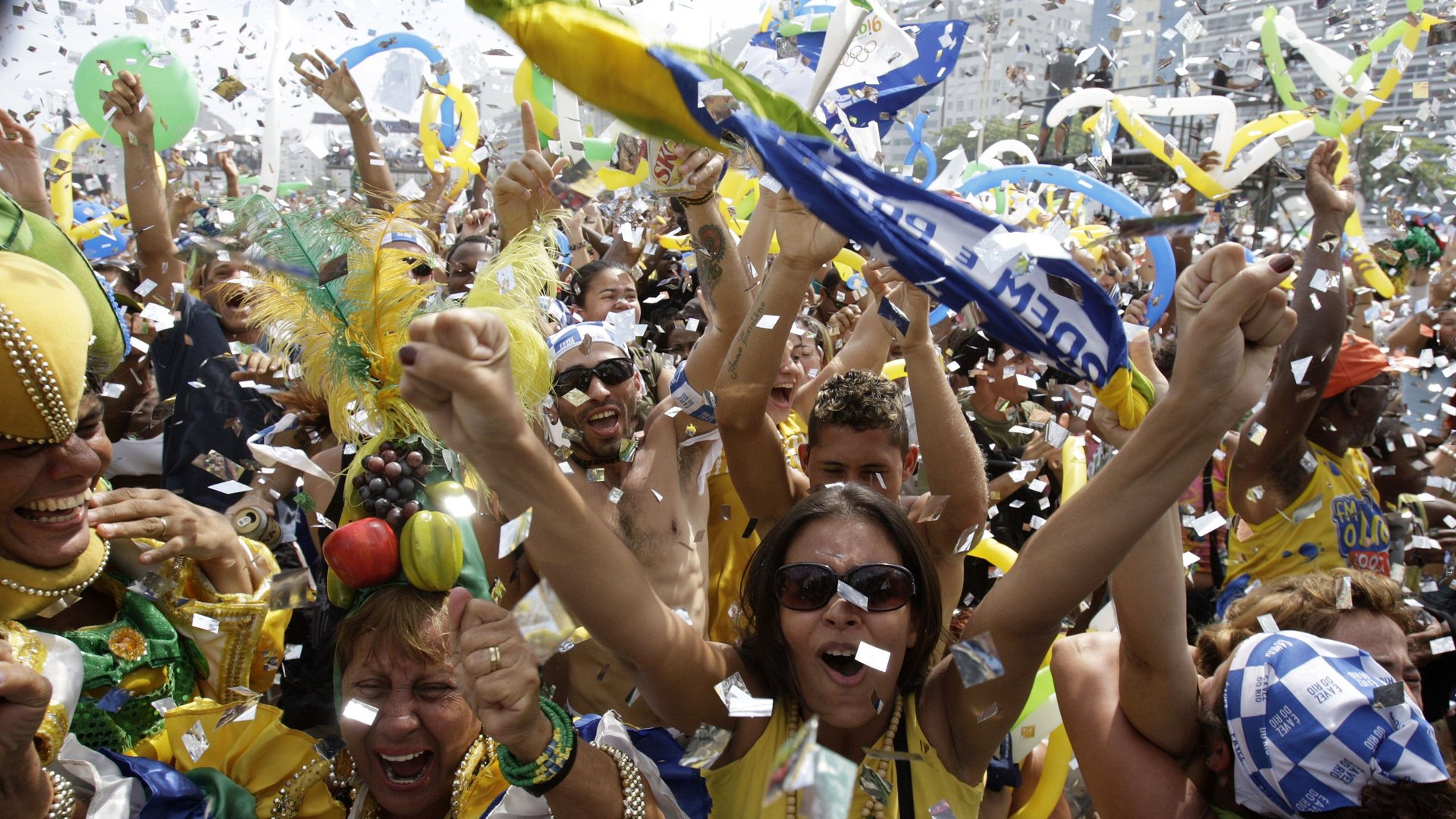Brazil will host the 2016 Olympics in far worse shape than when it bid for them
When Rio de Janeiro won the right to host the Olympics in October 2009, then Brazilian president Luíz Inácio Lula da Silva said he’d never felt prouder of his country. “We aren’t the United States, but we are getting there, and we will get there,” he said.


When Rio de Janeiro won the right to host the Olympics in October 2009, then Brazilian president Luíz Inácio Lula da Silva said he’d never felt prouder of his country. “We aren’t the United States, but we are getting there, and we will get there,” he said.
At the time, Brazil was a rising economic star, with an expanding export sector and a rapidly growing middle class. Now, less than a year before the opening of the games on Aug. 5, 2016, the carioca nation finds itself in a very different position. The economy is set to contract by 3% this year, and by 1% next (pdf, page 2.) The government’s deficit has ballooned to more than 9% of GDP, Brazil’s central bank said Dec. 29. And president Dilma Rousseff, who is fending off efforts to impeach her, is at the same time contending with the country’s biggest corruption scandal.
The Rio Olympics spokesman, Mario Andrada, recently told AFP that the Olympics are going to be “spectacular.” But there’s no way around cutbacks. The budget will be reduced by somewhere between 5% and 20%. Athletes will have to watch the games on communal TVs because there won’t be a set in their rooms. And dignitaries will be served traditional beans and rice instead of gourmet fare, according to the news agency.
Here’s why Brazil can no longer afford the Olympics it had in mind when it placed its bid.
The economy, which was riding a commodity boom, is now sagging.
Exports, until recently a powerful growth engine, are down as China and other buyers of the country’s commodities are slowing down.
The government is in over its head financially as it struggles to balance social spending with the new economic reality.
The economic crisis and a corruption scandal involving Petrobras, Brazil’s main oil company, has sunk Rousseff’s credibility.
Meanwhile, the real is worth less and less due to the political and economic crisis.